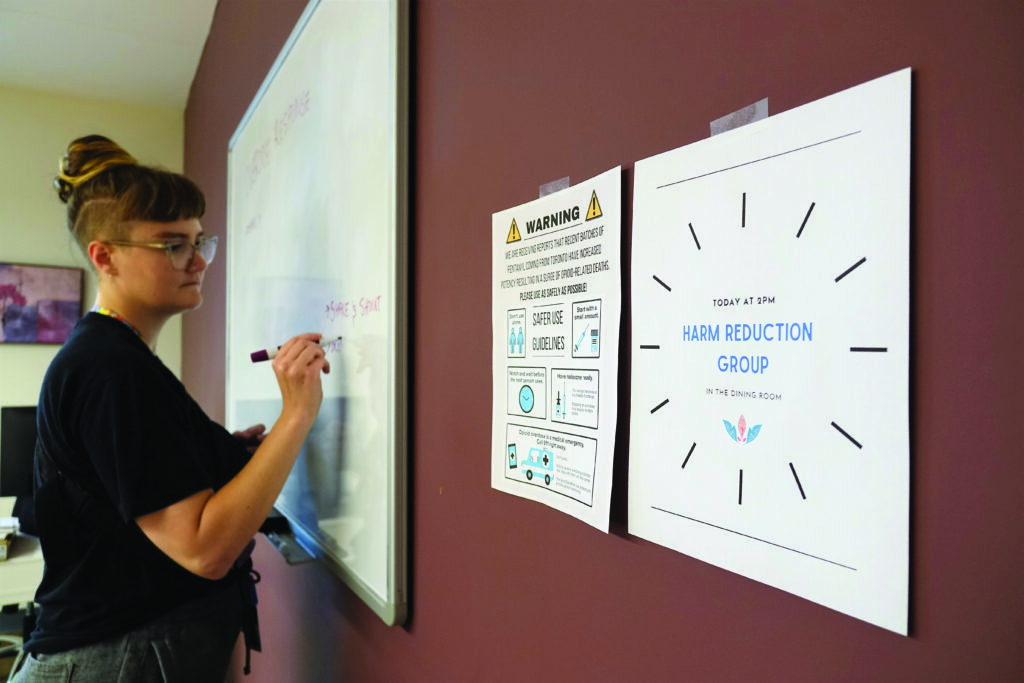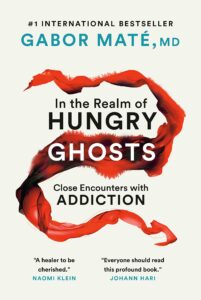According to Statistics Canada, one in five Canadians experience an addiction at some point in their lives. Between 2016 and 2020, Public Health Ontario reports that 7,658 lives were lost because of opioid poisoning (opioids are very strong pain management medications), and that doesn’t include deaths attributable to alcohol and nicotine use.
While addiction isn’t a reality for most people who live at Indwell, it is a daily struggle for some.
Johann Hari, author of Lost Connections, states: “When we give in to our anger towards addicts, or drugs – and there’s some of it in all of us – the problem only gets worse; and when we choose a deep kind of love, the results can be amazing” (Hari, 2016).
At Indwell, we choose to love deeply, recognizing each tenant’s dignity—regardless of their struggle— and hold hope as the foundation of everything we do. Hari names that we are all more vulnerable to addiction because we are increasingly isolated from each other, and from the things that give us meaning. It’s with this understanding that Indwell works to ensure that tenants experience belonging—with neighbours, community, and supports. This is why we have Addiction Support Workers—a role that’s crucial to fostering
connection without judgement.
What does this look like on a daily basis? We focus on establishing positive relationships, built on a foundation of trust, to support people in their goals for recovery. Recovery is an individual process which involves physical, spiritual, and emotional healing, allowing a person to reclaim a sense of authentic self-worth with the ability to establish meaningful attachments and feelings of belonging. We seek to accept people for who they are—and where they are at—and come alongside them as each one decides where they want to be.
Staff may provide holistic support through one-on-one conversation, case management, education, facilitation of recovery-based groups such as Alcoholics Anonymous, along with recreational groups to encourage relational connection.
We work to reduce stigma in our communities by educating colleagues and tenants on how language and perceptions can degrade dignity and impact how care is sought and provided—as shame and stigmatization are so often a barrier to people seeking help and connection. For example, instead of referring to someone as “druggie” or “meth head,” imagine the difference if people used language like, “that person who struggles with substance use.”
Recovery often starts with a person making healthier choices and reducing harm. Harm reduction, an evidence-based response to substance use, involves a set of practical strategies aimed at lessening the negative health and social consequences associated with substance use. On a broad level, we all engage in forms of harm reduction to minimize risk every day, such as wearing a life jacket when in a boat. In practice, these life-saving harm reduction strategies may involve the distribution of supplies such as Naloxone (a non-addictive drug that can temporarily reverse opioid overdose), as well as the use of assessments, support plans, smoking cessation programs, and relationships with community partners and physicians.
At Indwell, we’ve learned that even the littlest moments of connection can mean the world to someone. We know that by loving deeply and by building connections without judgement, our tenants feel valued and heard and know there is someone beside them on their personal road to recovery.

Interested in learning more about addiction, harm reduction, and recovery? Check out these resources:
In the Realm of Hungry Ghosts
by Gabor Maté
Canadian Mental Health Association:
ontario.cmha.ca/harm-reduction

References
Hari, J. (2016, April 12). Johann Hari: ‘The opposite of addiction isn’t sobriety it’s connection’. The Guardian. https://www.theguardian.com/books/ 2016/apr/12/johann-hari-chasing-the-scream-war-on-drug














